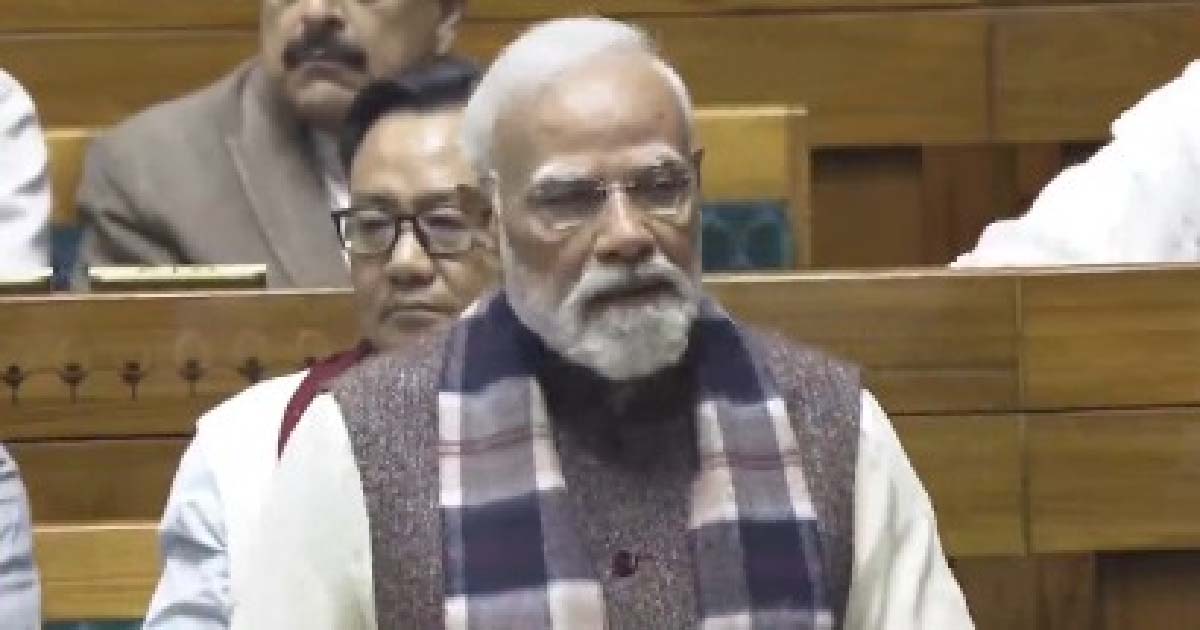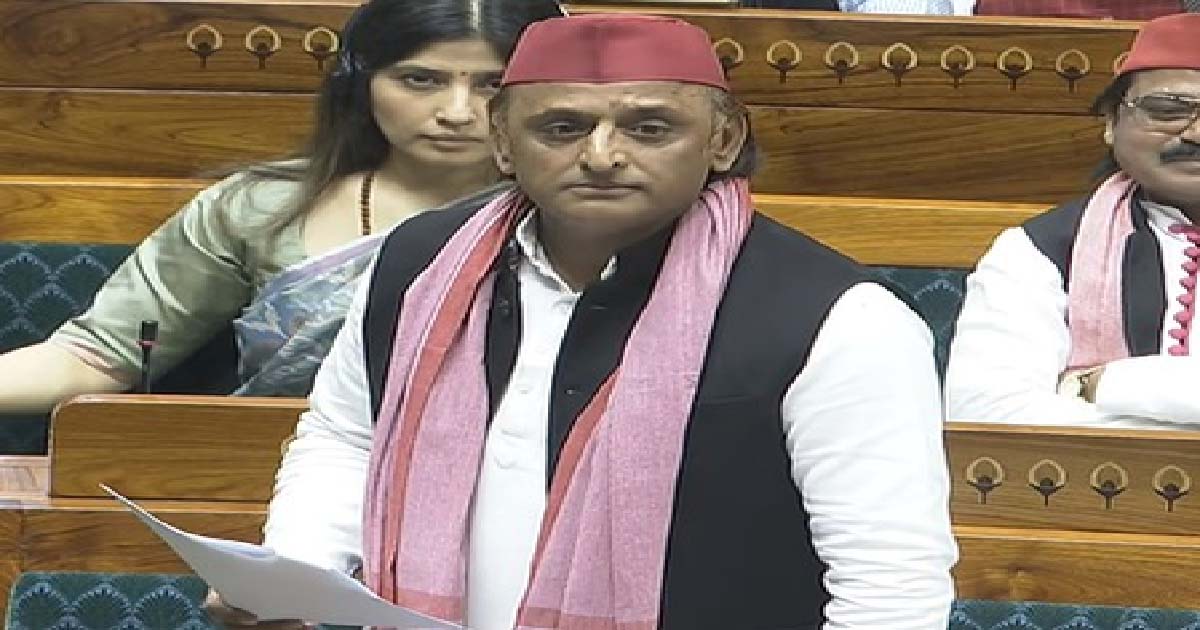National News
Dusted, rusted approach of vote bank is no longer working, says Nadda
BJP chief J.P Nadda on Monday said that Indian politics has undergone a rapid transformation in the last eight years.
In a letter to fellow citizens, Nadda said: “Indian politics has undergone a rapid transformation in the last eight years. The tried, tested, or I should say dusted and rusted approach of vote bank politics, divisive politics, and selective politics is no longer working.”
Nadda’s letter follows a joint statement of opposition parties on recent violence. “Under the leadership of Prime Minister Narendra Modi and his emphasis on ‘Sabka Saath, Sabka Vikas, Sabka Vishwas and Sabka Prayas’ every Indian is being empowered and is getting the wings to rise further. Unfortunately, this thrust towards development politics is being bitterly resisted by the rejected and dejected parties who are once again taking refuge in vote bank and divisive politics,” Nadda wrote.
He further wrote that today, India is seeing two distinctive styles of politics – the NDA’s efforts which are seen in their work and the petty politics of a group of parties, which is seen in their acerbic words. “In the last few days, we have seen these parties come together yet again in letter (whether in spirit too, time will tell) in which they have waged a direct onslaught on the spirit of our nation and cast aspersions on our hard working citizens,” he wrote.
Referring to violence in Rajasthan, he said: “I want to remind the rejected and dejected political parties – since you talk about vote bank politics, why have you forgotten the shameful happenings in Karauli, Rajasthan? What are the compulsions that are driving your haunting silence on the issue?”
“In November 1966, then Prime Minister Indira Gandhi opened fire on Hindu Sadhus sitting outside Parliament who had marched towards Delhi with the demand of banning cow slaughter in India. And who can forget Rajiv Gandhi’s infamous words – “When a big tree falls, the earth shakes” – that justified the killing of thousands of Sikhs in the wake of PM Indira Gandhi’s death,he said.
He mentioned violent incidents– Gujarat in 1969, Moradabad 1980, Bhiwandi 1984, Meerut 1987, various incidents against the Hindus in Kashmir valley throughout the 1980s, 1989 Bhagalpur, 1994 Hubballi. “The list of communal violence during Congress rule is long. Under which Government did the Muzaffarnagar Riots happen in 2013 or the Assam Riots in 2012,” he asked.
He noted that it was the UPA, controlled by an extra-constitutional NAC that brought in the most horrific Communal Violence Bill, which stooped to new lows of vote bank politics by even UPA standards.
“Similarly, the most horrific massacres against Dalits and Tribals have taken place under Congress regimes. This is the same Congress that even got Dr Ambedkar defeated in Parliamentary elections,” he said.
He mentioned that in Tamil Nadu, elements aligned to the ruling party in the state have left no stone unturned in verbally lynching, smearing and humiliating one of India’s tallest musical maestros just because he has views not palatable to one political party and their allies. “Is this democratic? One can have different views and yet coexist happily but why take to insults,” he further asked.
Talking about violent attacks on party workers in Kerala and West Bengal, the BJP chief said: “The shameful political violence in West Bengal and Kerala, and the repeated killing and targeting of BJP workers offers a glimpse of how some of our political parties view democracy.”
He pointed out that in Maharashtra, two Cabinet Ministers have been arrested on serious charges of corruption, extortion and links with anti-social elements. “Is this not worrisome for us as a nation that a state which houses India’s financial capital has such an uninspiring coalition where top Cabinet ministers have such extortionist tendencies,? he asked.
“This brings me to my next point. The reason for the shameful conduct by a select group of political parties lies in the above list of incidents that I have shared. Dyed in the wool proponents of vote bank politics that they are, these parties are fearing that their shenanigans are being finally exposed comprehensively,” the veteran leader said.
He alleged that for decades, they freely patronised lumpen, anti-social elements who bullied common people. Now that these elements are being subjected to the laws of the land, the parties which sheltered these elements are panicking and thus taking to this bizarre conduct.
“The results of the recently held Assembly election should be an eye-opener for those who thrive on vote bank politics. India’s largest state on the electoral map, a coastal state on the western coast, a state in the Northeast and a hill state have given a resounding mandate to the BJP,” he said.
Nadda claimed that due to the BJP, India is seeing a sentiment of pro-incumbency where developmental politics is being resoundingly rewarded.
The BJP also became the first party in many years to cross the 100 figure in the Rajya Sabha and get an absolute majority in the UP legislative council. The Opposition should introspect why the parties that ruled the nation for so many decades have been confined to the margins of history now, he noted.
“The youth of India want opportunities, not obstacles. They want development, not divisions. Today, when people across all faiths, all age groups as well as from all walks of life have come together to defeat poverty and take India to new heights of progress, I would urge the Opposition to change track and embrace the politics of development. We owe this to our coming generations,” Nadda added.
Crime
Palghar Crime: 40-Year-Old Constable Arrested For Allegedly Raping Woman Inside Kasa Police Station

Palghar, Maharashtra, Dec 08: A 40-year-old police constable has been arrested for allegedly raping a woman inside the Kasa police station in Maharashtra’s Palghar district, officials said on Monday.
According to a senior official from the Palghar rural police, the incident took place last week when the woman had visited the station to record her statement in connection with an ongoing case. The constable allegedly assaulted her within the premises.
Following a complaint filed by the woman, a case of rape was registered and the constable was arrested on Sunday, officials confirmed.
In the aftermath of the incident, the in-charge of the Kasa police station has been transferred. Further investigation is underway.
National News
PM Modi recalls how Vande Mataram defied British oppression, stood ‘like a rock’

New Delhi, Dec 8: Prime Minister Narendra Modi, on Monday, invoked the enduring spirit of ‘Vande Mataram’ while initiating a day-long discussion in the Lok Sabha to mark the 150 years of the national song.
He described it as a hymn that stood “like a rock” against British oppression and continued to inspire unity across generations.
Tracing the song’s journey from its composition by Bankim Chandra Chattopadhyay in 1875 to its role in the freedom struggle, PM Modi said ‘Vande Mataram’ became a current of emotion that bound the nation together.
“Even when crises like the coronavirus pandemic struck, the spirit of ‘Vande Mataram’ continued to connect the country. Today, as we march towards an ‘Atmanirbhar Bharat’ (Developed India), this hymn remains a source of strength,” he noted.
The Prime Minister quoted Mahatma Gandhi, who had described ‘Vande Mataram’ as a song that united the nation.
“Pujya Bapu (Mahatma Gandhi) said ‘Vande Mataram’ connects us. It is the dream of today’s generation to build a prosperous India, and this song continues to inspire that vision,” PM Modi said.
He emphasised that the hymn was more than just words — it was a mantra of sacrifice, resilience, and unity.
From the days of colonial bans, when people were punished for speaking or printing the words, to the sacrifices of countless freedom fighters who embraced martyrdom with ‘Vande Mataram’ on their lips, the song has remained a symbol of defiance and hope.
PM Modi urged the Parliament to ensure that the legacy of ‘Vande Mataram’ is preserved and passed on to future generations.
“This is not just a tribute to history but a reaffirmation of our democratic spirit. The lessons of the past must continue to guide our future,” he said, adding that the 150th anniversary was an opportunity to restore pride in a hymn that has been the heartbeat of Bharat.
Initiating a day-long discussion on 150 years of ‘Vande Mataram’ in the Lok Sabha, PM Modi noted that ‘Vande Mataram’ stood like a rock and inspired unity despite British oppression.
“When ‘Vande Mataram’ completed 100 years, the nation was chained by the Emergency. At that time, the Constitution was throttled and those who lived and died for patriotism were pushed behind bars,” he said.
“The Emergency was a dark chapter in our history. Now we have the opportunity to restore the greatness of ‘Vande Mataram’. And I believe this opportunity should not be allowed to pass,” PM Modi added.
National News
‘BJP wants to own everything’: Akhilesh Yadav in LS during Vande Mataram debate

New Delhi, Dec 8: Samajwadi Party chief Akhilesh Yadav on Monday accused the BJP of trying to “own everything and claiming exclusive nationalism”, which was in fact “Rashtra-vivadi (anti-national).”
In his address during a special session of the Lok Sabha to commemorate 150 years of ‘Vande Mataram’, he said the national song belongs to every Indian and cannot be politicised.
Yadav said, “When in Kolkata, Congress leaders and Rabindranath Tagore sang this, it reached the common people, and when people fought against the British, the slogan of Vande Mataram played a major role in uniting them.”
He added, “When the British got panicked by this slogan, they used to put people in prison under anti-national cases. From 1905 to 1908, Vande Mataram was banned by the British, but they were not able to stop our revolution, and our freedom fighters kept taking it forward.”
Targeting the ruling BJP, Yadav said, “The ruling party in our nation wants to own everything. The things they do not have, they want to own. When the organisation was being formed, and the chairman who was chosen, there was debate on whether the BJP would go on the secular path, the socialist path or not. The chairman appointed at that time chose the secular and socialist path. On his stage, using Jaiprakash Ji’s picture, they tried to spread that they would follow his footsteps.”
Urging that Vande Mataram must be understood beyond symbolism, he said,
“Vande Mataram is not just to sing but to act as well. The Vande Mataram, which connected everyone in the independence movement, today, some people are trying to break the nation; they are still trying to do so. Vande Mataram is not a political subject or something to show off, but these BJP leaders act like it’s a song made by the BJP. People who did not take part in the independence movement — how will they know the value of Vande Mataram?”
In one of his strongest lines, Yadav said, “They are not ‘Rashtravadi’ (nationalist); they are ‘Rashtra-vivadi’ (anti-national). Back then, the British used to divide and rule; today, also some people are accepting that path of divide and rule.”
Continuing his criticism, he added, “The truth is that only a few people truly recited Vande Mataram from the heart. Some even worked as spies and informers for the British against those freedom fighters. Vande Mataram is not for fake politics.”
Yadav also accused the BJP of trying to appropriate icons: “Our party ended communal politics from where the BJP started it. They started putting Ambedkar’s picture in their election meetings after facing losses from the SP.”
-

 Crime3 years ago
Crime3 years agoClass 10 student jumps to death in Jaipur
-

 Maharashtra1 year ago
Maharashtra1 year agoMumbai Local Train Update: Central Railway’s New Timetable Comes Into Effect; Check Full List Of Revised Timings & Stations
-

 Maharashtra1 year ago
Maharashtra1 year agoMumbai To Go Toll-Free Tonight! Maharashtra Govt Announces Complete Toll Waiver For Light Motor Vehicles At All 5 Entry Points Of City
-

 Maharashtra1 year ago
Maharashtra1 year agoFalse photo of Imtiaz Jaleel’s rally, exposing the fooling conspiracy
-

 National News1 year ago
National News1 year agoMinistry of Railways rolls out Special Drive 4.0 with focus on digitisation, cleanliness, inclusiveness and grievance redressal
-

 Maharashtra1 year ago
Maharashtra1 year agoMaharashtra Elections 2024: Mumbai Metro & BEST Services Extended Till Midnight On Voting Day
-

 National News1 year ago
National News1 year agoJ&K: 4 Jawans Killed, 28 Injured After Bus Carrying BSF Personnel For Poll Duty Falls Into Gorge In Budgam; Terrifying Visuals Surface
-

 Crime1 year ago
Crime1 year agoBaba Siddique Murder: Mumbai Police Unable To Get Lawrence Bishnoi Custody Due To Home Ministry Order, Says Report












